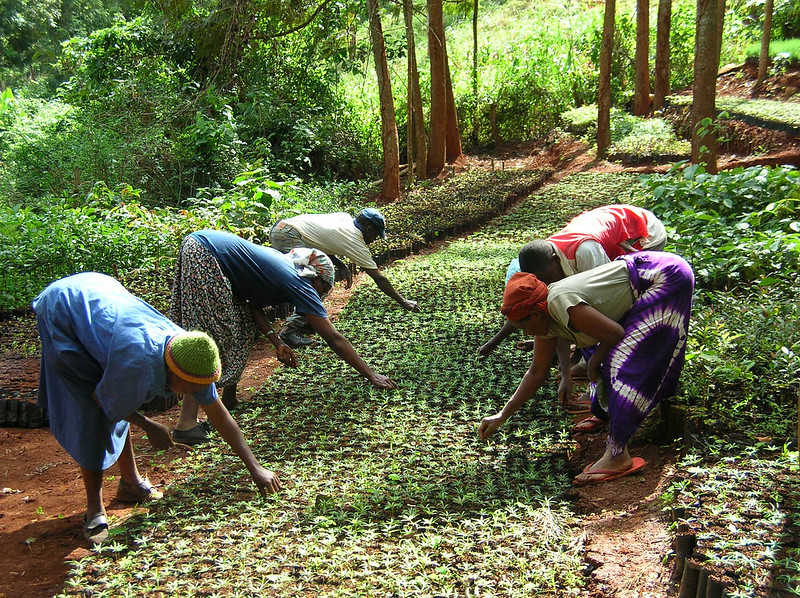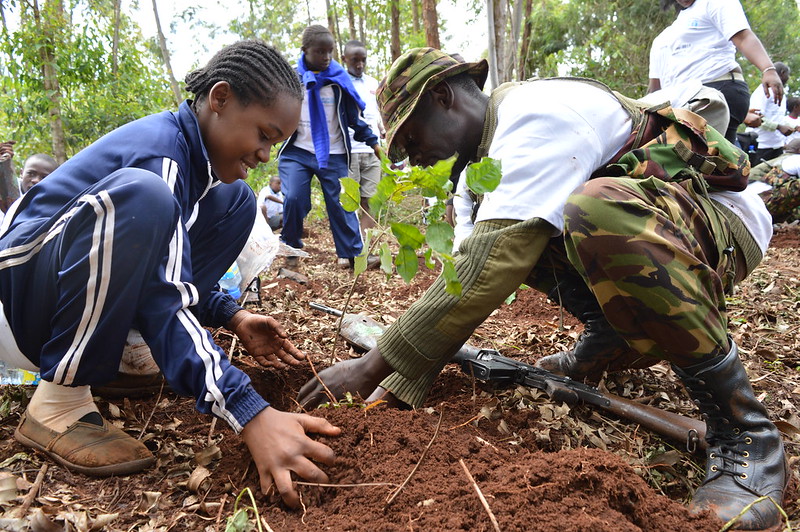GBM Blog
Empowering Africa: Strategies for Climate Action

Each year, the global community comes together to discuss the ongoing climate crisis, aiming to devise strategies to address this pressing issue. This year's conference, hosted by the United Arab Emirates, which currently holds the COP28 presidency, provides an opportunity for nations to commit to concrete actions in response to the escalating climate crisis. World leaders have consistently underscored the urgency of accelerating efforts to limit global warming to 1.5 degrees. During the opening ceremony, UN Secretary-General Antonio Guterres emphasized the necessity of not just reducing but completely phasing out the burning of fossil fuels, noting that this approach must have a clear timeframe.
Kenya's President, H.E. William Ruto, shares Guterres' sentiments and stresses the critical need for transformative climate action to alter the current trajectory of the world. Despite Africa contributing minimally to the climate crisis, it disproportionately bears the consequences. While discussions continue at COP28, African countries and the region as a whole must actively participate in finding solutions to their climate issues, allocating budgets strategically, and directing funds to areas that will yield positive results, ensuring a sustainable environment for future generations. One of the areas that can support Africa’s journey towards the alleviation of a climate crisis is the use of clean energy. Stakeholders must support the use of clean energy sources such as solar, wind, and hydropower to reduce reliance on fossil fuels and diminish greenhouse gas emissions.
The Green Belt Movement (GBM), through the Green Climate Fund (GCF), is actively engaged in a project promoting climate-friendly cooking in Kenya and Senegal. The initiative aims to boost the market for Improved cookstoves by leveraging last-mile distribution channels through market development support and consumer education. So far, the project has already kicked off in Kenya in the areas of Nyeri and Laikipia. The other critical sectors that the world must pay attention to are afforestation and reforestation to increase carbon sequestration, protect biodiversity, and enhance ecosystem services. The Green Belt Movement has a longstanding commitment to mobilizing communities for environmental restoration. Efforts include afforestation, reforestation, and community-based planting to ensure the survival of forests and impart environmental education across generations.
Significant accomplishments in 2023 include the planting of 22,800 trees in Muiku forest and an additional 7,200 trees in the Njuri area, both located in Chuka County. In partnership with the World Resources Institute (WRI) and the Priceless Planet Coalition led by Mastercard, the Green Belt Movement is implementing a landscape restoration project in Makueni County, targeting the Makuli-Nzaui Landscape. In the ongoing rainy season, GBM working with local communities and stakeholders, has planted a total of 252,448 indigenous tree seedlings in the degraded forests and another 84,095 high value fruit and agroforestry seedlings on small holder farmers in the area. The project targets to grow 1.2 million tree seedlings by the end of 2026. This initiative, covering crucial water catchments and the county's food basket, will have far-reaching local and global impacts, stabilizing climate, increasing food production, and improving water availability.
Since 2017, GBM has collaborated with ECOSIA, a non-profit organization dedicated to tree planting and conservation, in a project dabbed "Upscale of Water Tower Restoration and Community Empowerment." This initiative specifically targets key biodiversity areas, with a primary focus on Mount Elgon and the Mau complex, which are vital water towers in Kenya. To date, more than 4 million indigenous tree seedlings have been grown. In the current year alone, 555,019 tree seedlings were planted, contributing to the restoration of 222 hectares of degraded forest lands. This brings the cumulative restored area to over 1,601 hectares since the project's inception six years ago. The impact of these nature-based initiatives is evident in the success stories shared by community beneficiaries in the project areas.
There is still work to be accomplished, and we are actively seeking additional opportunities for involvement.

Teaming up with The Agence Française de Développement (AFD), The Green Belt Movement is dedicated to restoring 300 hectares of deteriorated forest areas through the replanting of native species. This initiative aims to support hydrological systems, enhance soil health, promote forest biodiversity, and contribute to carbon sequestration.
Through the Restore Africa program, a community-led, nature-based carbon removal initiative, the Green Belt Movement is supporting millions of vulnerable farming families. These efforts are aimed at restoring biodiversity, enhancing livelihoods while mitigating the effects of climate change on a global scale. In Kenya, the project’s objective is to assist 250,000 small-scale farmers and pastoralists, covering 250,000 hectares of land in five target counties by 2052, launching initially in Narok and Migori counties. Our efforts serve as evidence that each person has a part to play.
As the outcomes of COP28 unfold, stakeholders in the climate space must regroup in smaller forums to discuss how to implement the key agendas discussed at the annual summit. We must act as individuals, as governments, as development partners to ensure that we realize the envisioned results on paper—a clean and secure environment for ourselves, our children, and future generations.
